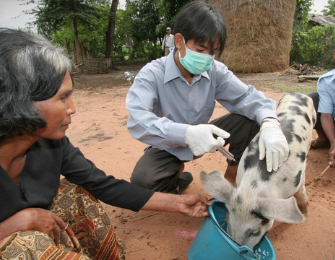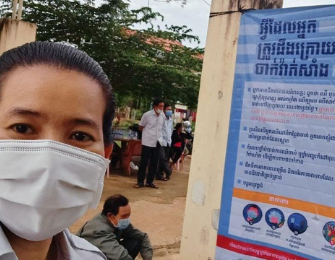Many countries in the Indo-Pacific face significant gaps in the information required to detect, identify and respond to disease threats. Public health surveillance in some countries is weak, covers only some of the population or lacks the timeliness necessary for effective decision-making. In addition, laboratory information systems may be limited and hospital information systems are often manual or incomplete.
Anti-microbial resistance is also on the rise and some countries experience problems with the availability of essential medicines. Within this context, the availability of robust data is critical to enable health workers and policy makers to make timely and well-informed decisions.
Tupaia aggregates and visualises data from multiple sources to help improve medicines availability, map disease outbreaks, respond to disasters and strengthen service provision in the Indo-Pacific.
The Tupaia team, with Australian government support, is also helping to roll-out mSupply mobile, an innovative mobile-telephone based medical supply stock information system that can be used by frontline health workers to ensure medicines and other supplies are stocked and up to date.
PARTNERSHIP
Beyond Essential Systems is based in Melbourne.
Since the implementation of Tupaia, there have been measurable improvements in the supply and delivery of pharmaceutical and medical supplies and the implementation of treatment guidelines. For example, the availability of medicines has improved in Kiribati and Solomon Islands.
In Vanuatu, Tupaia is being used to track fridge temperatures which are critical to ensuring that medications and vaccination are stored appropriately. This has enabled governments to quickly identify which fridges require maintenance.
For disaster response, Tupaia was used in the aftermath of Cyclone Gita in Tonga in 2018. There, it helped to provide a before-and-after picture of facility infrastructure and the status of service provision within 48 hours of the cyclone hitting. This enabled better informed decisions to be made rapidly.
Public health services in target countries will be able to make better informed decisions relying on improved data. For example, medicine stock-outs and urgent orders are reduced.




